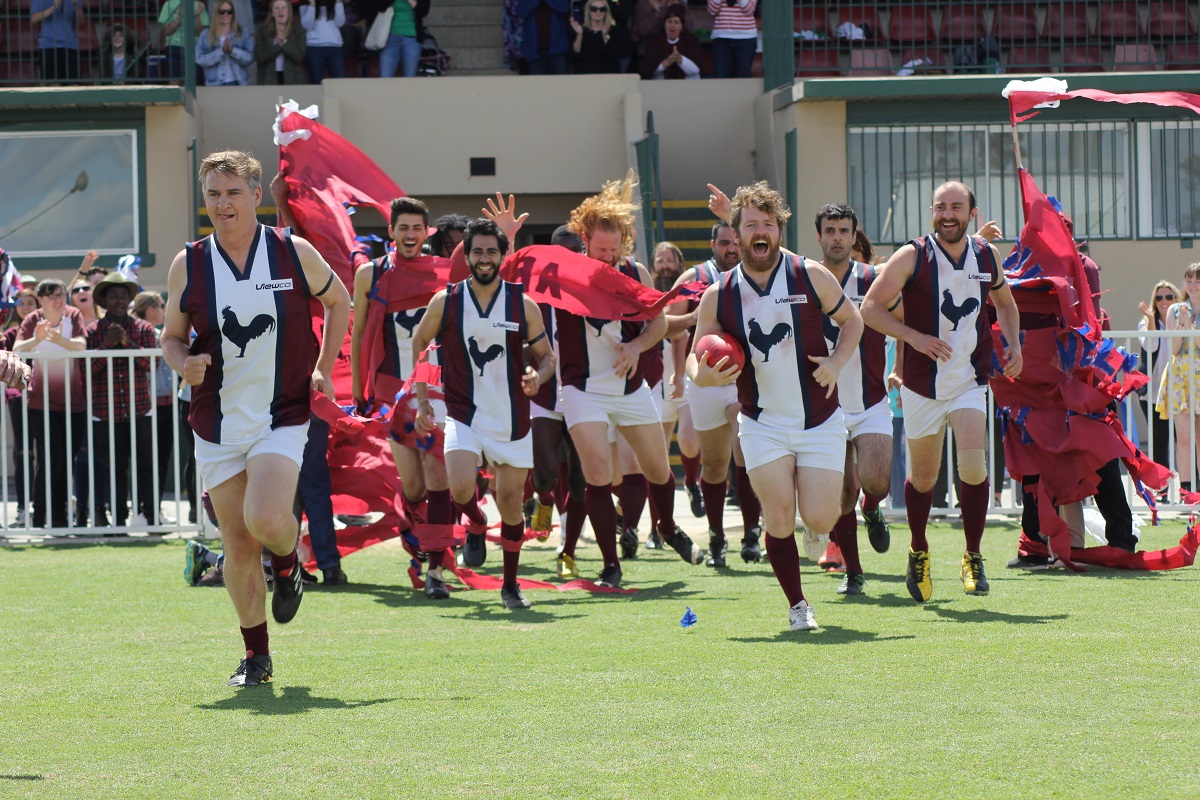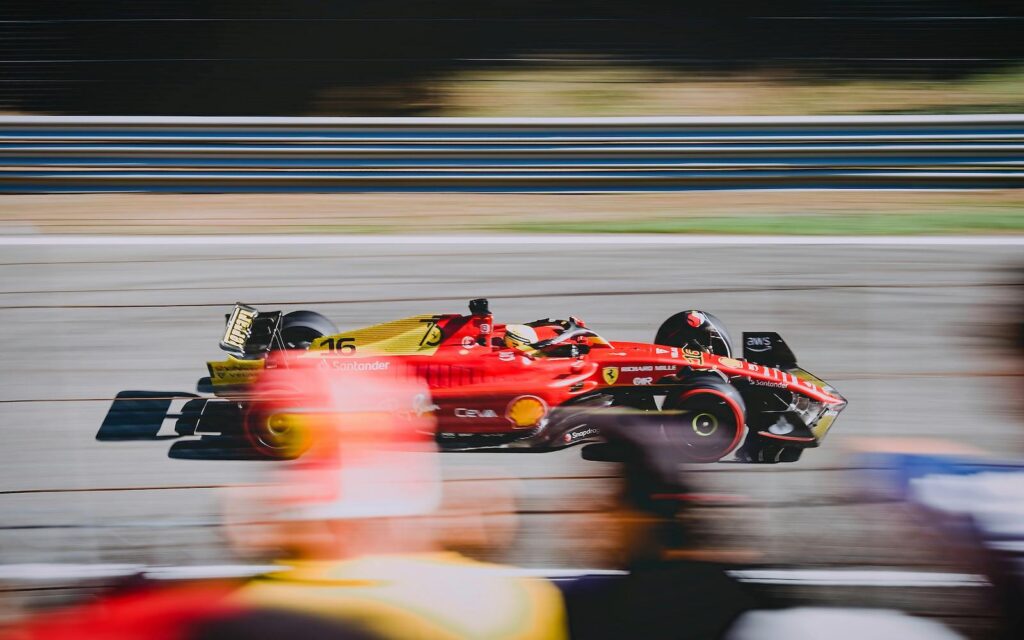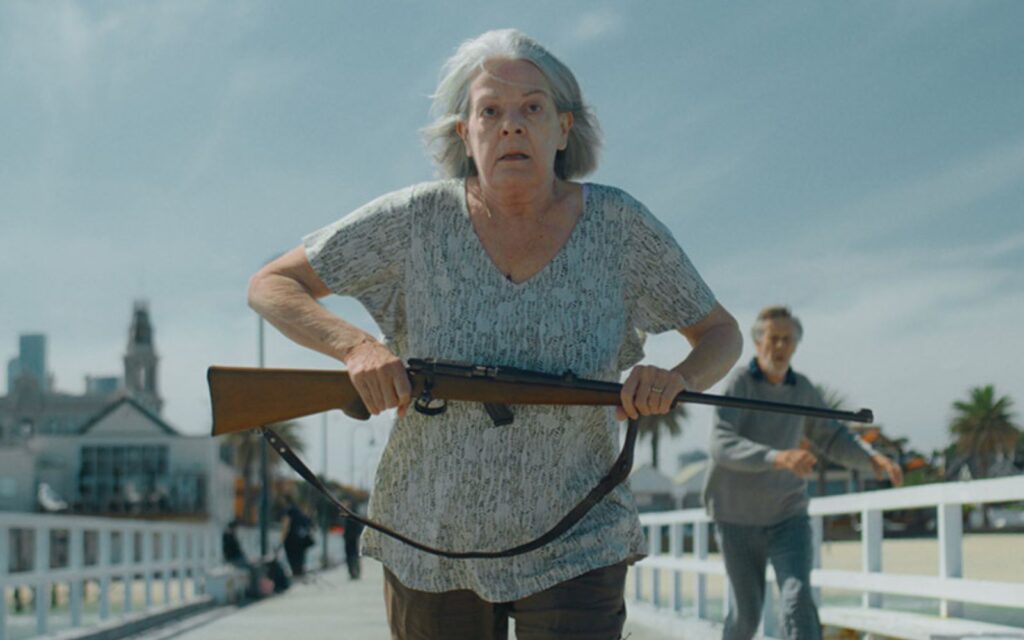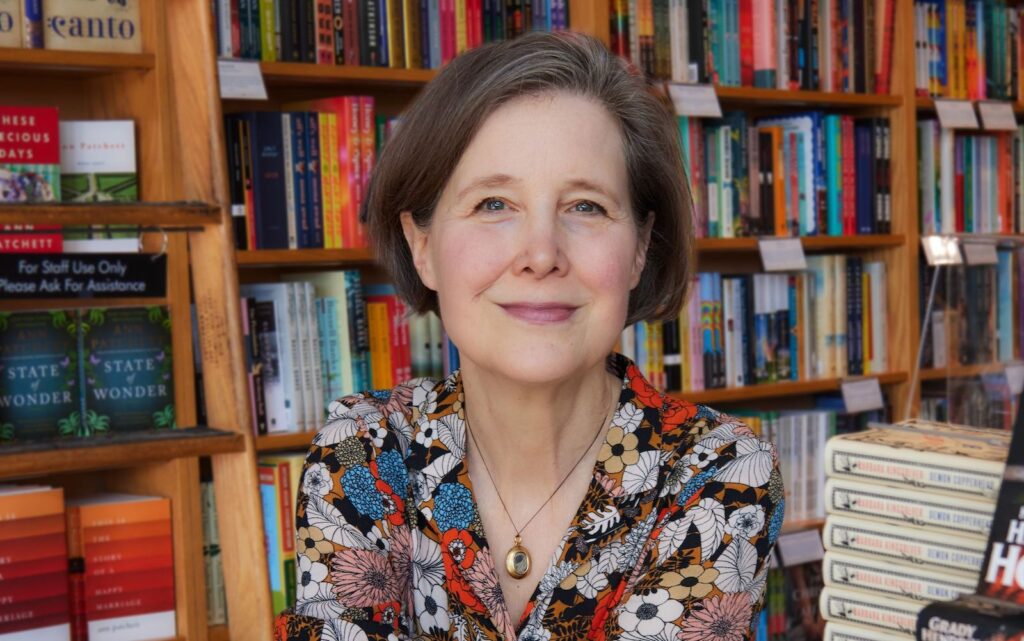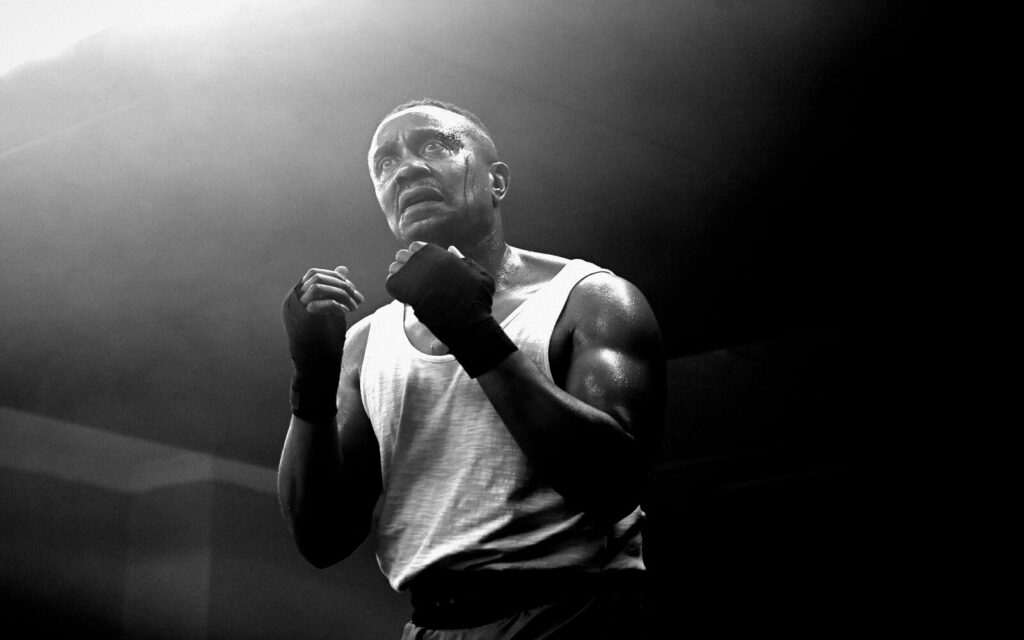Brace yourself for a spotlight on real-world issues that’ll elicit heartfelt laughter and move you to tears. The Merger is the story of a small town Aussie rules footy team that recruits refugees to survive – a decision met with discrimination and misunderstanding, but ultimately sheds a light on hardship and reveals more similarities than meets the eye.
In the township of Bodgy Creek, jobs are scarce, the population is dwindling and the footy club is on the verge of extinction. Locals recruit refugees to ensure the survival of the team, but the idea isn’t welcomed by all. Based on the one-man stage play written and performed by comedian Damian Callinan, The Merger is a hilarious and heart-warming tale of a community attempting to embrace change.
On The Soundtrack, with Composer David Bridie
You might assume that creating the soundtrack for The Merger – a witty combination of comedy and real-life socio-political issues – might prove a challenge, but for composer David Bridie that wasn’t the case.
“At the beginning, it was always a project that was effortless,” says Bridie. “You’ve got the comedy and the country town setting and the characters who are big in the film, so we wanted to make it a little bit more characterful.
“I really like the soundtrack in Hunt For The Wilderpeople [2016], and I thought that was a good way of going about comedy. It’s kind of edgy and forces analogue keyboard textures as quirky songs. We needed a lot of that kind of music for the football scenes.”
When penning the score for The Merger, Bridie had the opportunity to work with refugee musicians who contributed elements of their home country’s traditional sounds. “We were working with [Kurdish asylum seeker and musician] Farhad Bandesh who’s [detained] on Manus Island at the moment.
“We released a song and film clip he made by him sending material through his phone. The Sayyid character in the film is Kurdish, and I asked Farhad if he wanted to compose a cue for the moment the character meets his family from the bus.
“It meant the world to Farhad to be involved. Him and his mates on Manus were able to sit and watch the whole film for some entertainment – it had them laughing and crying at the same time.”
In a similar method, Bridie worked with musicians heralding from New Caledonia and Papua New Guinea whose music, he says, worked well in some of those tracks. “Damian does these great community radio announcements [in the film], pretty comical, so we came up with music to go under that. That was a lot of fun.”
Inclusivity is perhaps The Merger’s biggest theme, and in collaborating with these musicians inclusivity stretches beyond the screen. Bridie and Damian Callinan are indicating a new direction in Australian film and film music.
“These stories are fascinating,” says Bridie. “So people who are here, the paradigm in Australia, it makes that story a lot more interesting to include these stories.
“There’s so much to recommend that approach, as well as the fact that in this day and age, in this situation, the stories that are going on at Manus Island, it’s like us turning our back on that region.
“I made an enquiry in Brisbane about a poor soul in Manus who had a massive infection and was left on the tarmac for six hours in the boiling sun – if that was an Australian citizen, the minister would have to resign.”
Bridie says change isn’t a challenge to what is the right or wrong way, but times do change. “These are the things that become part of our music, part of our cooking, part of the way we build houses, part of the way we deal with the landscape.
“All the musicians I’ve worked with have been fantastic, and it’s been cool to work on a film that would allow for that approach.”
On The Film, with Writer Damian Callinan
Beginning as a one-man stage play, Damian Callinan portrayed nine characters, two of whom were sock puppets, in a performance that perfectly balanced comedy and drama to send a message. “I was very clear in my mind I wanted it to be a very entertaining show,” he says. “Kind of like a Trojan horse – get [the audience] in, get them to love the footy club, love the characters, and then introduce the idea of the refugees about halfway through the show, then things change.
“The film is similar, people will recognise the characters and the town. Towns have got their own problems – populations are dwindling, businesses close, central characters are experiencing grief. In the second half, we start to see the full tragedy of the refugees play out, but still with a bit of comedy.”
As society has evolved, so too Callinan has evolved to tell these stories through a different medium. Going from performing these characters solo to working with other people presented a few challenges. “Learning the medium of film and the structure was the hardest part – writing the characters and their dialogue came fairly easily.
“Then you get these incredible actors who take on these roles you’ve written and they take on a whole new direction. The heart and soul they put into it make life easier for us.”
In having actors from different ethnic backgrounds and writing for characters of different origins, it was an education for Callinan and the crew – both on and off screen – to work with people who aren’t stereotypically Aussie and learn about different cultures and different struggles. In Wagga Wagga, where the film was shot, the Yazidi refugees made a particular impression. “There’s a heap of them who landed in Wagga and a few ended up becoming featured extras. One, in particular, became almost the mascot of the film, and we got to know his story. One of his siblings is trapped in Germany and can’t get a visa to be reunited with his family.
“These stories happen right the way through the film, imitating life. It’s been a life-changing experience for me and a lot of people [working] on the film.”
Though he has a background in comedy, it wasn’t a difficult transition for Callinan to retain serious sentiment when it was needed. “Having done the live show and playing all the characters, I have an understanding, certainly of the Sayyad character and the Bull character, who play on your emotions. I have an understanding of when comedy should come back in and when it shouldn’t.
“Mark [Grentell, director] has an understanding too of when it should work and doesn’t undercut the drama. It makes it a bit more real.”
Naturally, there’s a lot to be felt from The Merger and in what is essentially an education in acceptance. If there’s a particular sentiment Callinan wants people to take away, to understand that this is based on things happening in our country now, it would be inclusivity.
“I knew that trying to lecture people and tell them what to think wouldn’t work, so what I’ve tried to achieve is a story that people get involved in and learn about the plight of the individuals rather than a racial group, and then, it’s all about empathy.”
